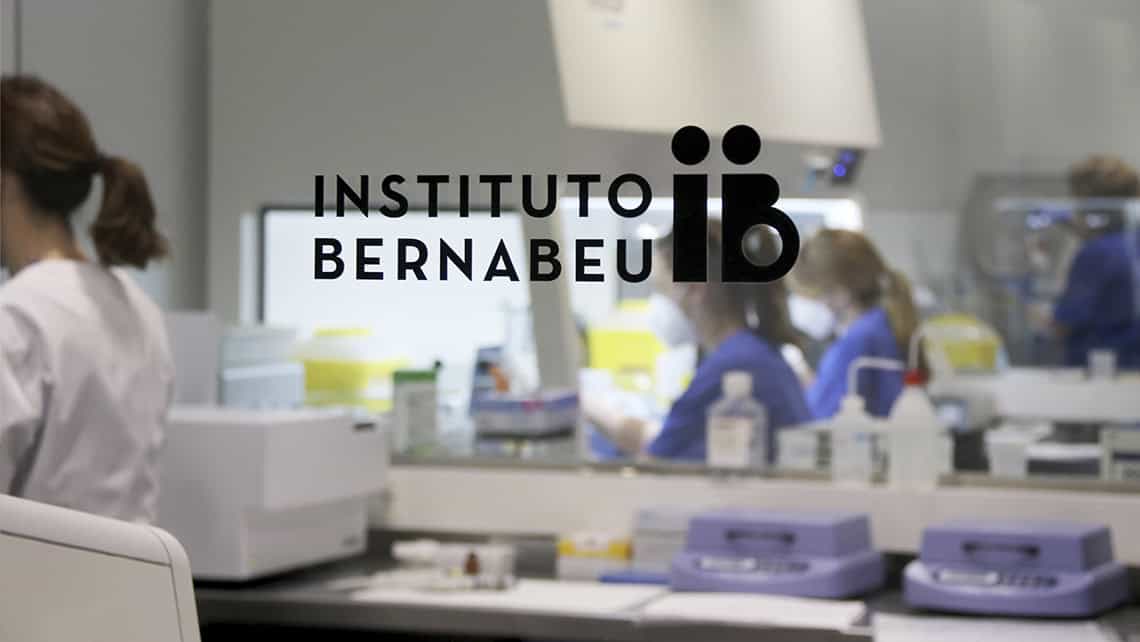Instituto Bernabeu presents thirteen research studies at the world’s most important reproductive medicine congress
July, 5th 2024

- Female talent: ESHRE selects four studies led by female researchers from Instituto Bernabeu as oral communications for its European congress
- The congress discusses reproductive medicine in a context where the irruption of artificial intelligence and the current demographic challenge is highlighted
- Spanish scientific brand, a world benchmark in reproductive medicine, key to the fight against the current decline in birth rate
Spain is a world scientific power in the field of reproductive medicine thanks to the fertility research contributions of the different national clinics. Instituto Bernabeu will once again attend the European Fertility Congress ESHRE 2024, a meeting to be held in Amsterdam from 7 to 10 July, which has established itself as the most important congress on reproductive medicine in the world for its scientific contribution to this field. At this important annual event for specialists in assisted reproduction, the group led by doctors Rafael and Andrea Bernabeu, will present a total of 13 studies, the result of the continuous research efforts of its professionals.
In this line, female talent stands above all. Of the thirteen studies selected, ten are led by female researchers. In addition, four of them will be presented in oral format, a type of communication reserved for the most outstanding works. More than 80% of the group’s staff are women.
On the one hand, Dr Ana Fuentes, gynaecologist specialising in reproductive medicine and coordinator of the Low Ovarian Reserve Unit at Instituto Bernabeu, will present a study exploring the influence of age on endometrial receptivity, a key factor in the success of embryo implantation. This study has identified a correlation between the woman’s age and different ultrasound markers, including endometrial compactness, uterine peristalsis and the presence of uterine pathology. These markers, in turn, are associated with the chances of embryo implantation and the risk of complications during pregnancy.
On the other hand, Dr Belén Lledó, scientific director of Instituto Bernabeu Biotech, will talk about a study that explores the connection between alterations in the vaginal microbiome and difficulties in achieving pregnancy. The study has revealed that the presence of certain microorganisms in the vagina affects the production of cytokines, proteins that play an important role in the body’s inflammatory response. Patients with a dysbiotic vaginal microbiome have higher levels of the cytokine and the relative abundance of certain bacterial genera can predict the levels of these proteins, suggesting that some pathogenic bacteria may alter cytokine production.
Dr Annalisa Racca, medical coordinator of Instituto Bernabeu Venice, will present a multicentre trial that aims to optimise FSH treatment after administration of corifolitropin alfa. The results showed that women in the group with the lowest dose of FSH had lower average progesterone levels at the time of ovulation, compared to the groups receiving higher doses of FSH, so it can be concluded that using a lower dose of FSH during ovarian stimulation in IVF could help control progesterone levels, which could lead to more fresh embryo transfers and higher pregnancy rates.
Finally, Sara Dalla Costa, a lawyer specialising in bio-law and coordinator of Instituto Bernabeu Venice, will present a study on the transport of human gametes and embryos from abroad to Italy with the aim of alleviating the shortage of local donors. Following the 2014 ruling that legalised in vitro fertilisation with gamete donation in Italy, the acquisition of these gametes continues to be a problem and this situation forces public clinics and hospitals to rely on foreign gamete banks.
Regarding the poster presentations, Instituto Bernabeu researchers will address topics such as double stimulation, optical genomic mapping or PGT-A cycles with donated oocytes. The congress has selected nine research projects led by Almudena Marco, Beatriz Boyano, Jaime Guerrero, José Antonio Ortiz, Juan Carlos Castillo, Lydia Luque, Mónica Aparicio, Nerea Díaz and Paqui Lozano. On the other hand, Dr Andrea Bernabeu, medical co-director of the Instituto Bernabeu Group, will be one of the expert speakers at the closing session organised by Ferring Pharmaceuticals. In her presentation, she will discuss the two randomised clinical trials currently being conducted on follitropin delta. One of them is taking place in Europe, where Dr Bernabeu herself is the principal investigator of the study, while the other is being conducted in China.
Participation in leading congresses such as ESHRE 2024 places Instituto Bernabeu at the forefront of reproductive medicine worldwide and allows us to share the latest advances in research with the international scientific community. Furthermore, the interaction with other professionals in the framework of the congress opens the door to possible future collaborations and the development of joint research projects.
